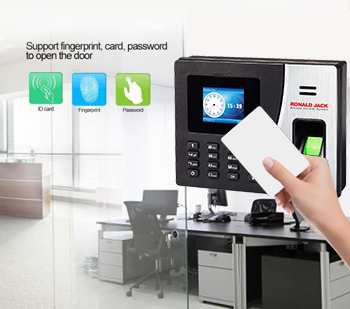How to still have a chance to get promoted while working from home
How to still have a chance to get promoted while working from home
The following three tips can help you achieve your promotion goals even when working from home in a more difficult situation than at the office.
Last year, how did you write down your career goals? Are you striving for a raise or promotion? Unfortunately, the pandemic has made that goal for many people difficult to achieve.
Experts at Henley Business School, University of Reading (UK) conducted a global survey on promotion opportunities from 2020 to present. As a result, promotion decisions have actually declined as the pandemic unfolds. However, the survey also summarizes 3 basic secrets, from some people still getting a raise or being appointed to a higher position.

Stay connected with your boss
Working from home offers perks like dressing comfortably, or getting from bed to desk in just 30 seconds instead of hours in traffic. But working from home, in essence, is without direct contact with colleagues and superiors. The “far away from the heart” is real and your problem is to make sure the relationships at the office remain strong.
Research by a team of experts from the Henley Business School shows that employees who lay the groundwork to build strong relationships with managers are 82% more likely to be promoted to promotions than colleagues who do not keep in touch. However, you need to communicate with them regularly in a graceful manner.
Staying connected doesn’t mean you text your boss every hour to report all the work you just got done, unless asked to. Here are some ideas:
Update what you’re doing: Make it easy for your boss to know what you’re doing. Then, if there are more quests, you will be selected first. To get back to work, or suggest how and how often to update your work progress to your boss.
Propose an idea: This demonstrates initiative and leadership, and shows you know the company’s goals and how to achieve them.
Proactively help: Ask your boss what he or she is doing or need help with. When you help them, it’s also an opportunity for them to see what you want to work for. You could say, “I know you spend a lot of time doing market research. Is there anything I can help? It will also help me better understand the needs of the market.”
Seek feedback: 96% of leaders surveyed say employees need to proactively ask for feedback from their supervisor, at least once a quarter, to show that they’re willing to improve. This also helps you know when it’s time to ask for a promotion.
Contributing to the team
Online meetings are a daily work for managers to give tasks to the team and an opportunity for employees to raise ideas. So take advantage of these meetings or group chats to share your opinions and ideas.
You may feel vulnerable at first, especially if your contributions are met with a lot of criticism. But the more you practice, the better ideas you will develop and the support and collaboration of your colleagues. As many as 75% of employers surveyed, this is an important factor to consider a prospective employee. Here’s how to contribute effectively:
Practice first: If you’re a newbie, practice before you state your idea formally. Ask a senior colleague if your idea has ever been proposed or rejected. If it’s already deployed, find a way to stay involved in that process. If it’s rejected, find out why.
Think about the logistics and feasibility of the idea: Before pitching an idea, think about other things that will be affected if implemented. Does your idea cost money? Does it require the participation of many people? Or is it easy to do? The easier it is, the more likely it is to be approved. But don’t let that limit you; just make sure you really have a detailed, well thought out, research plan in place
Develop your own advantages: Help your colleagues in your own way. Leverage your skill set, network or knowledge to make yourself the perfect person to lead a project. Are you good at data analysis? Can you spot and find trends? Show your manager and team how powerful you are.
Preserve evidence
Working in an electronic environment means you can keep track of your work with ease. When working on a project (whether alone or in a team) or with external colleagues, keep a copy of any feedback you receive. 80% of people who got promoted in the survey said they did. When they ask for a promotion, they have concrete evidence of their past performance.
Also, the panel recommends that you write a summary of about 200 words for each project you receive. Content includes your role, what you’ve learned, and any feedback you’ve received, both good and bad.
You can send the summary with you when you want to ask for a promotion, or use it as a reference when you’re having a face-to-face conversation about the possibility of a promotion. Here’s how to implement effective content:
What you’ve done and done well: Begin your summary by talking about your success as a project leader. This is not self-promotion but to help managers understand your contributions. Have you tried a new tool or process? Can you think of an efficient way to allocate work among your team members?
What you’ve learned and can do better: What did you learn from doing this project? How can you make it better and what goals have you set for yourself from that experience?
79% of managers surveyed said that employees setting goals for themselves instead of waiting for their superiors to assign them is what they look for when deciding to promote someone. Consider using the phrase, “If we could do this again, we could do better if….”
Take responsibility for both success and failure: 89% of bosses place a high value on integrity. When you work as a team, it’s easy to shirk responsibility or blame a process. Show your boss how willing you are to take responsibility. If you make a mistake, admit it and talk about how you can avoid it in the future
CÁC TIN LIÊN QUAN
- (Tiếng Việt) Quản lý nhân sự xây dựng như thế nào?
- (Tiếng Việt) Kinh nghiệm lựa chọn phần mềm chấm công cho máy chấm công vân tay
- (Tiếng Việt) Giao việc là gì? Cách để ủy quyền và giao việc hiệu quả
- What are SLAs? Businesses that want to be sustainable cannot do without SLA!
- Ronald Jack hands over Smart Human Resource Management 4.0 solution to the Vegetarian Restaurant chain
- HOW TO BECOME A GOOD HUMAN RESOURCE ADMINISTRATIVE?
- What is IoT? Application of IoT in business and life
- AI detects shipwrecks from the air
- Students of Hanoi University of Industry study the application of ‘problems’ to detect exam cheating
- Top 7 best task management software today







